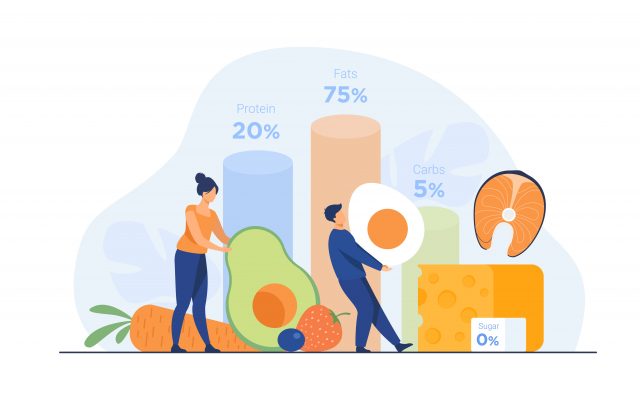The United States I am the country where obesity it concerns 40% of adults and where, for this reason, there are many studies that are carried out to try to solve and stem the problem. From The American Journal of Clinical Nutrition comes one now new Research focused on the effects that rapidly digestible refined carbohydrates have on our metabolism. In short, the conclusion drawn from this research is that it is not the quantity that counts but what we eat.
The old approach
According to the scientists, therefore, a model that would be more functional should not involve pushing people to eat less but, rather, to follow a path focused on what you eat. We have always been used to a type of slimming approach that involves remove something, thus decreasing the number of calories ingested in favor of more physical activity.

Now, however, this research published in the American Journal of Clinical Nutrition (The Carbohydrate-Insulin Model: A Physiological Perspective on the Obesity Pandemic) is ready to deny this approach, supporting an alternative model that would offer more effective, manageable and long-lasting weight control: the model carbohydrates-insulin.
The new approach: the carbohydrate-insulin model

This model is not entirely new, it was born in the early 1900s, but what the team of scientists, researchers and health experts want to do today is formulate a more concrete model. “Reducing the consumption of rapidly digestible carbohydrates reduces the urge to store body fat. As a result, people can lose weight with less hunger and fatigue“. This is what Dr. David Ludwig, an endocrinologist at Boston Children’s Hospital and a professor at Harvard Medical School, and lead author of this study.

According to Ludwig the way obesity is often dealt with does not help delve into the biological causes leading to weight gain, while the new carbohydrate-insulin model would be able to dig into the problem of obesity. The key to solving the problem therefore lies in what you eat, not in the quantities. And not only. The dietary models used so far foresee the excessive consumption of foods that have a high glycemic load, such as processed carbohydrates, which are easily digestible.

The mechanism is this: in front of refined carbohydrates, the body increases the secretion of insulin by suppressing the secretion of glucagon, the peptide hormone of the pancreas, which signals fat cells to store more calories leaving few available to nourish muscles and other tissues. So at this point the brain understands that there is not enough energy for the body and, as an alarm signal, it sends feelings of hunger, abruptly slowing down the metabolism to conserve energy. By decreasing, however, the intake of refined carbohydrates this process is much less frequent and also decreases the possibility of gaining weight. We are facing a new model that will help to deal with weight problems or it will return to the good old diet in which you are suffers hunger?
